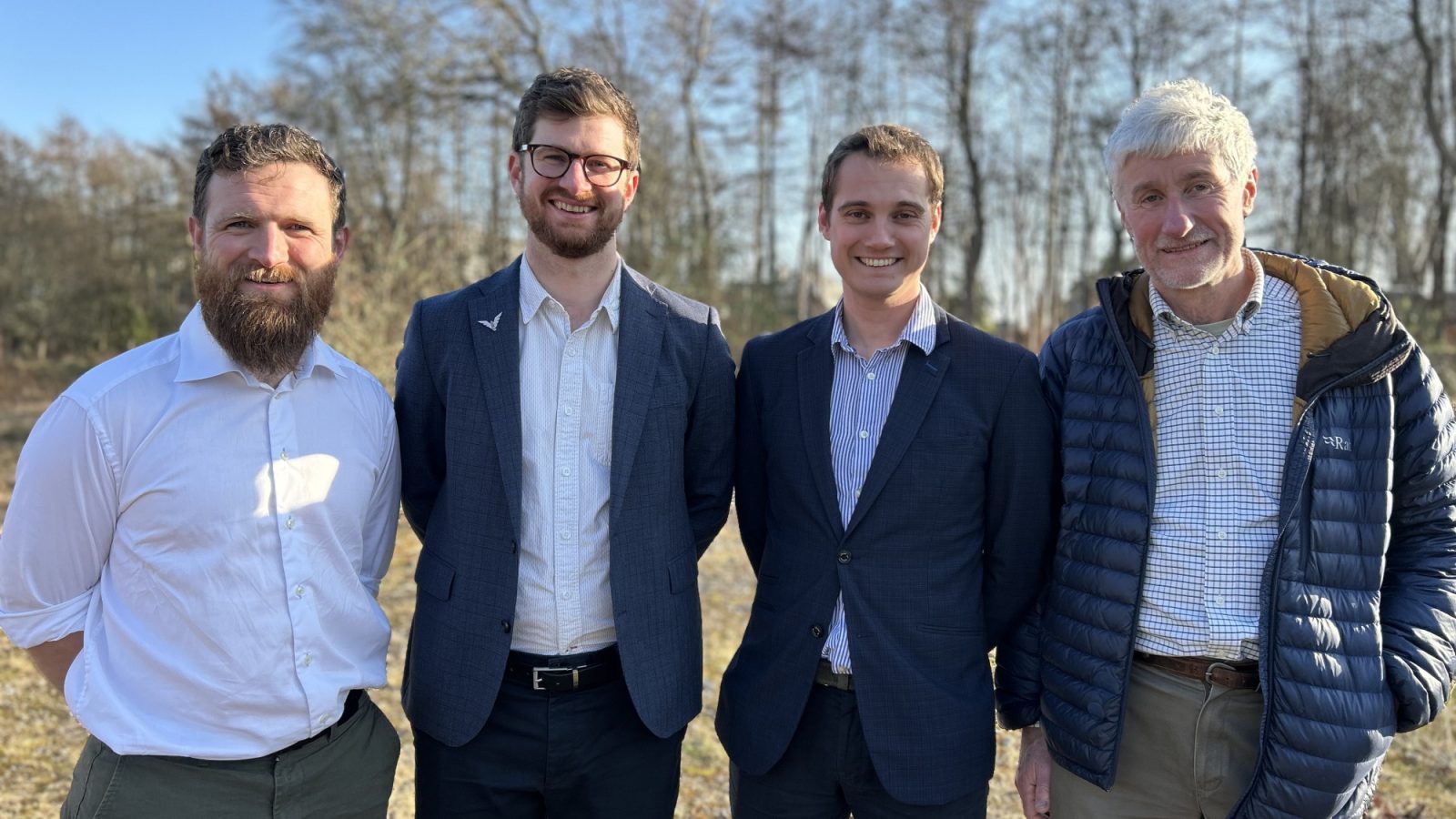A Scottish Government funded, desk-based feasibility study completed by TownRock Energy in partnership with NHS Grampian has highlighted the immense potential of renewable geothermal power beneath the ground in Aberdeen.
TownRock has produced a
detailed report for the health board, explaining the viability of three
different geothermal technologies. It concludes that an Enhanced Geothermal
System (EGS) reaching to depths of 3.5km or 5km underground would provide the
best solution to supply significant quantities of renewable geothermal heat to
meet the demands of the Foresterhill Health Campus.
Deep geothermal technology
provides a clean, renewable and low-carbon energy source which can be used for
heating, cooling and electricity generation. Similar to how the Eden Project uses geothermal energy to
heat to one of the world’s largest indoor rainforests in the South of England,
a Foresterhill geothermal system would also tap into the Earth’s heat using
holes just 25cm wide. It works by pumping cold water deep underground which
comes back hot enough to heat buildings. It’s renewable, safe and has a low
impact on the surrounding landscape.
Not only is there potential
to heat the Foresterhill site, but also to connect existing and future local
heat networks. Estimated costs suggest energy could be delivered for less than
that of traditional heat costs per kWh and is largely isolated from market
price fluctuations.
Michael Black, Energy
Manager for NHS Grampian, explained: “If you compare the estimates, and I
must stress these are estimates at this time, to the cost of gas then the case
for exploring this further is strong. The cost per kWh is halved if we aimed to
create a bigger system to supply a bigger network, which is why we’re now
working with Aberdeen Heat and Power, RGU and the University of Aberdeen to
consider the options for working in partnership. Not only is there a cost
saving to be made but this renewable heat source could deliver energy to help
us realise the benefits of supporting local people faced with fuel poverty
too.”

From left, NHS Grampian’s energy manager, Michael Black, alongside David Townsend, Michael van Mourik and Phil Townsend from TownRock Energy.
The next phase of the project would mean proving the viability of the EGS technology proposed in the feasibility study. There are two options for this and both would mean drilling a borehole to a depth of 2.5km, at a cost of at least £2.45m. The process uses similar skills and technology to those used in the North Sea oil and gas industry, and it’s hoped the plans could support the North-east's transition to renewable energy sources.
Michael added: “When you consider the energy bill for the Foresterhill Health Campus alone is around £1m per month, moving to the ‘prove’ phase of the project may be a financial investment worth making. But there is a huge amount of work to do with partners to look at the options on the table and explore potential funding sources.”
Professor John Underhill, Aberdeen University’s Director for Energy Transition said: “Geothermal heat can offer a good clean energy solution for domestic heating when and where the underlying geology permits. Aberdeen affords such an opportunity as the city is sited on granite, which has a higher geothermal gradient than other rocks, with a sedimentary aquifer cover meaning that local heat could alleviate fuel poverty and reduce bills by warming homes and buildings. Aberdeen University is pleased to be working with and supporting Aberdeen City Council, RGU and NHS Grampian to explore the opportunity of utilising deep geothermal heat to promote clean energy solutions and aid the city’s transition to net zero emissions.”
Dr David Cornwell, Senior Lecturer in Geophysics at the University of Aberdeen, added: “Aberdeen is the perfect city for geothermal to contribute to heating and offset rising costs for hospitals and homes. We already have most of the technology, equipment, skills, infrastructure and supply chain but require better subsurface temperature and geology information to de-risk and inform future geothermal projects. Our ‘Aberdeen Geothermal Feasibility’ working group continues to share resources and knowledge to secure more funding for innovative geothermal projects for the benefit of all in the city.”
TownRock Energy CEO David Townsend said: “The feasibility study enabled us to look in detail at how deep geothermal wells would have to be drilled to achieve the temperature and heat generating capacity we’d need for NHS Grampian, and start to build a business case for further development. The findings are promising so far, and an exploration drilling phase would prove the commercial viability of the system and determine how best to design and build it. With the right design, a geothermal system could produce enough heat not just for Foresterhill Health campus but for many other heat users in Aberdeen which currently rely on gas.
“When people hear the word geothermal, they often think about active volcanic and tectonic areas, like Iceland or Italy, where hot rocks have been producing power for over a hundred years. But recent advances in engineering mean that lower temperature resources in geologically stable regions like Aberdeen are now viable.”
Find out more about NHS Grampian’s approach to tackling climate change: www.nhsgrampian.org/sustainability
Find out more about TownRock Energy: www.townrock.com